Features
SLFP Mudalalis
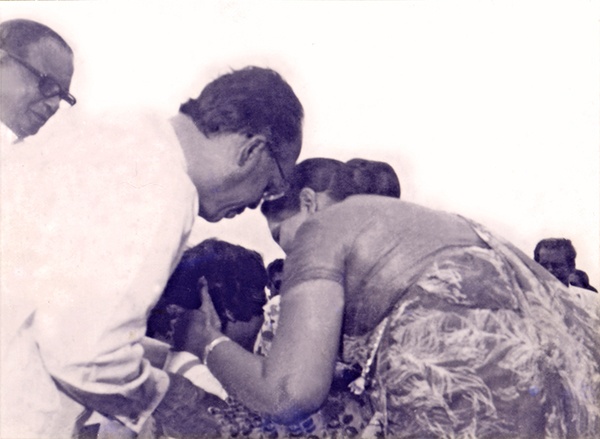
by Sarath Amunugama
While his supporters were fitted into convenient positions on State boards, Minister R S Perera was more interested in his own nascent business interests. He set up a factory in Kelaniya to make rubber slippers. Then he set up a factory to manufacture ‘mantles’ for Kitson lamps. Since we got on well he would invite me to his spacious office to observe his experiments in firing up the gauze mantles which gave a blinding light for the Kitson lamp. He confided in me that he himself had to conduct the experiment because if anybody else discovered the formula he would take it to another investor. A sudden visitor to his office would have found the Minister and his Director of Information huddled behind a table trying to ignite a Kitsons lamp – a task which was not included in the gazette notification which detailed our respective responsibilities. Apart from his pseudo cientific experiments RS soon began to leak Cabinet secrets to SLFP Mudalalis. By this time the SLFP, and particularly Mrs. B, had nurtured a group of native entrepreneurs who using state patronage had built up lucrative businesses. They were personally loyal to the Prime Minister and a few of her like minded ministers including Maitripala Senanayake, Illangaratne and Kalugalle. Those ministers were quite willing to instruct the State Banking system and the State Trading bodies to favour these Mudalalis. ‘These lucky businessmen included J P A Piyadasa, Dasa, McCallum, Ratnapura Gem merchants, Douglas Perera and a host of other smaller fry including R S Perera, who were solidly behind the SLFP. They were now alarmed that NM was dead set on dismantling their privileges. They also succeeded in getting the ear of Felix who was willing to ally himself with anyone in order to establish himself as the intellectual leader of the SLFP government. After every Cabinet meeting on Wednesday morning RS would come back to his office and telephone his Mudalali friends about the latest outrage proposed by the Finance Minister Some of them would then come over to personally inspect RS’s copy of the offending Cabinet paper. Then they would lobby their friends to get the proposals rescinded. NM and Bernard made proposals to clean up the Banking system. Any attempt to change the structure of the People’s Bank was strongly opposed by the Mudalalis. It was the People’s Bank under its General Manager Solomons that had provided easy credit to fuel the acquisitions and investments of the Mudalalis. The LSSP had appointed Hector Abeywardene as the Chairman and he was not hobnobbing with the businessmen as his predecessors had done. In fact NM’s tinkering with the Banks based on an outdated philosophy did more harm than good.
 The economy was on a downward spiral and following the shibboleths of the Marxists, NM was replacing entrepreneurship with State enterprises with neither the managerial capacity nor the enterprising spirit to be a success. He was dismantling a system which could deliver the goods and replacing it with the dead hand of the state because of an out of date doctrine. No wonder Felix and the modernists of the SUP were aghast at the blundering attitudes of `golden brains’ NM. They called him a ‘Gadol Modaya’ instead. I can recoil one occasion when we were summoned by NM to discuss publicity for his programmes. I suggested that his numerous corporations be asked to publicise their work with newspaper advertisements. NM was horrified at this idea and said that he did not want the Corporations to spend money oil propaganda. Since he was also not willing, to spend money from the Budget for publicity the case for the Government went by default. He had no time for modern publicity and was content to leave that to his party machine which was nearly extinct. This was a silly attitude when the JVP was throwing the book at the leftist leaders and creating a huge wave of hatred towards them. I had a great friend in Sarath Nawana, a dynamic LSSPer who came back from UK with the 1970 victory. He wanted to modernize the propaganda effort of the party. He became the editor of the ‘Janadina’ the LSSP paper and rival to “Aththa” which itself was becoming more critical of the Government. The leftist ministers of the Government were constantly in fear of being pulled up by the PM at Cabinet meetings for the criticisms levelled in their party newspapers. Nawana was continually warned by NAM who however resisted requests from other leaders to fire him. Sira of “Aththa” was also being warned regularly though Pieter and Sarath Muttetuwegama defended him. I had to constantly interact with these two irascible journalists particularly since my Minister RS was their favourite target. By this time RS and his Mudalali friends had become bitter enemies of NM. They were constantly bad mouthing him and complaining to the PM while at the same time Kumar Rupasinghe was poaching leftist cadres.
The economy was on a downward spiral and following the shibboleths of the Marxists, NM was replacing entrepreneurship with State enterprises with neither the managerial capacity nor the enterprising spirit to be a success. He was dismantling a system which could deliver the goods and replacing it with the dead hand of the state because of an out of date doctrine. No wonder Felix and the modernists of the SUP were aghast at the blundering attitudes of `golden brains’ NM. They called him a ‘Gadol Modaya’ instead. I can recoil one occasion when we were summoned by NM to discuss publicity for his programmes. I suggested that his numerous corporations be asked to publicise their work with newspaper advertisements. NM was horrified at this idea and said that he did not want the Corporations to spend money oil propaganda. Since he was also not willing, to spend money from the Budget for publicity the case for the Government went by default. He had no time for modern publicity and was content to leave that to his party machine which was nearly extinct. This was a silly attitude when the JVP was throwing the book at the leftist leaders and creating a huge wave of hatred towards them. I had a great friend in Sarath Nawana, a dynamic LSSPer who came back from UK with the 1970 victory. He wanted to modernize the propaganda effort of the party. He became the editor of the ‘Janadina’ the LSSP paper and rival to “Aththa” which itself was becoming more critical of the Government. The leftist ministers of the Government were constantly in fear of being pulled up by the PM at Cabinet meetings for the criticisms levelled in their party newspapers. Nawana was continually warned by NAM who however resisted requests from other leaders to fire him. Sira of “Aththa” was also being warned regularly though Pieter and Sarath Muttetuwegama defended him. I had to constantly interact with these two irascible journalists particularly since my Minister RS was their favourite target. By this time RS and his Mudalali friends had become bitter enemies of NM. They were constantly bad mouthing him and complaining to the PM while at the same time Kumar Rupasinghe was poaching leftist cadres.
N M Perera
NM had been my ‘Beau Ideal’ when I was in the University. With a double doctorate in Political theory at the LSE under Harold Laski he was a scholar and writer of the first rank. His analysis of the annual budget was the best reasoned speech in Parliament. After speaking in Parliament he would come to Peradeniya to repeat his analysis and we would listen spellbound by the clarity and originality of his exposition. Whenever NM spoke at Peradeniya the Arts theatre was jam packed with both staff and students hanging on to his every word. NM was always elegantly, though simply, dressed in white trousers and bush shirt with a weatherbeaten watch on his right wrist. I noticed that the dial of the wristwatch was turned s and NM would from time to time dramatically look at the time, perhaps a habit picked up in Parliament where time is rationed. He loved fancy shoes and sandals. Later when I would meet him at Colvin’s house, where he would sit patiently to pick up his colleague for a high class social visit, I noticed his brightly polished shoes which would have been the envy of a ballroom dancer. In fact NM was a great ball room dancer and ladies would compete to take a turn with him. All this was of course hidden from his half starved worker supporters who imagined that their leader was living on ,half rations.
As the Secretary of the University Economics society, which was a LSSP front, I would visit NM in his Borella house to fix dates for his and other party bigwigs visits to the Campus for lectures. His front office was full of books and newspapers which could certainly have done with some dusting. There was a large portrait of Trotsky indifferently hung up. In the middle of the room there was a large table with a mountain of files on either side. He guffawed when I told him about our requirements. ‘You people are with us only till you pass the CCS exam’ he said. ‘Only Batty and Shanmugaraja continued with us’. I assured him that this time it would be different. Little did I know at that time that he was prophetic. Any way he consulted his diary and gave me some was prop he tic. Any way he consulted dates and a couple of dog eared books for me to read. Vivienne Goonewardene came from inside the house and seeing that I was famished after the long train journey from Peradeniya, invited me to have breakfast. NM waded into the stringhoppers and I marvelled at his appetite. He had a broad chest which was barely contained by a sleeveless banian. He wore a checked sarong and had a pair of cheap wooden clogs on his feet. His wooden clogs were the stuff of legend. Apparently after their celebrated jail break on the eve of the Japanese air attack on Colombo during the second world war, NM held up the getaway by going back to his cell to retrieve his cheap wooden clogs much to the fury of Robert Gunawardene who had coordinated the operation ‘Yathura’. Significantly the LSSP selected the key as their party symbol for the election. NM was well known for his frugality and thrift. Sarath Nawana told me how he refused to loosen the purse strings for expenses for his party paper. While having breakfast he cut short our discussion about politics and was planning a Buriyani dinner expedition to a Muslim friend’s house. He asked Vivienne, who by this time was living with him, to ring up Leslie and invite him also for Buriyani. Many years later I had to interact with him almost daily during the JVP insurrection which I will describe later. After he was defeated in 1977, and was out of Parliamentary politics which had been his life’s vocation, I visited him in his Cotta road residence which he occupied after selling his Borella property. There were not many visitors then but his faithful Sena Gunasekera and long standing driver looked after him. I remember NM affectionately talking to his dog which curled under his table and was licking his toes. I was the Secretary to the Media ministry when NM died in hospital. My Minister Ananda Tissa de Alwis and I rushed there and coordinated the final ceremonies with JRJ’s concurrence. Though he was out of Power we ensured that NM got what was in effect a state funeral. have a vivid mememory of his old comrades led by Colvin whoa walked all the way behind the cortege and were sprawled on sports ground totally exhausted and oblivious to the official ceremonies that had begun and were being broadcast island wide.
Liepzig
With the success of the ULF, embassies of the socialist bloc became more active in Colombo. The PM made several highly successful visits to China ina and the USSR. She was so popular as the first woman PM that the Bandaranaike name became synonymous with Sri Lanka in foreign countries. With her trade mark Kandyan saree, flashing smile and inborn courtesy she made a brilliant ambassador for her country and global leaders vied to be photographed with her. In the Information Department we were inundated with requests for interviews which she handled with great aplomb. It was her and the country’s finest hour. Whenever Somasara and I wanted to meet her we would go early in the morning to Temple Trees and she would greet us graciously and quickly decide on the issues on which we needed guidance. Her officials in the Defence ministry – Ratnavale and Ridgeway Tillekeratne – had been my bosses in Ratnapura and were constantly in attendance at Temple Trees and we could all chat with her easily because of the Ratnapura connection.
She followed her husband in only using Temple Trees for official engagements and lived in her own house at Rosmead Place. Her house was well kept but did not have any of the garish furniture that has become so commonplace in politician’s houses today. The telephone was fixed to a bracket on the wall and Mrs. B would take calls in the sitting room for everybody to hear. After her state visits she would be received ceremonially by the cabinet on the airport tarmac. These festivities were orchestrated by T B Illangaratne. I was drafted into this ceremony because I had to bring my younger daughter Varuni and her friend Lekha Ratwatte, daughter of Mackie, to the tarmac to present bouquets of flowers to the returning PM. This was a nerve racing task for me as the two mischievous children would run around and had to be dragged back just in time to greet Mrs. B who unfailingly kissed them after receiving the welcoming flowers.
This is an excerpt from Sarath Amunugama’s three-volume autobiogbraphy, the first of which is now in print.
Features
Following the Money: Tourism’s revenue crisis behind the arrival numbers – PART II
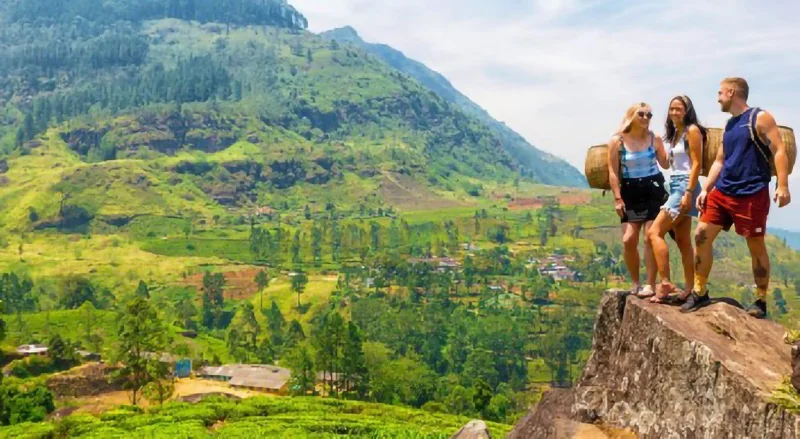
(Article 2 of the 4-part series on Sri Lanka’s tourism stagnation)
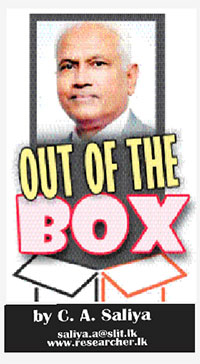 If Sri Lanka’s tourism story were a corporate income statement, the top line would satisfy any minister. Arrivals went up 15.1%, targets met, records broke. But walk down the statement and the story darkens. Revenue barely budges. Per-visitor yield collapses. The money that should accompany all those arrivals has quietly vanished, or, more accurately, never materialised.
If Sri Lanka’s tourism story were a corporate income statement, the top line would satisfy any minister. Arrivals went up 15.1%, targets met, records broke. But walk down the statement and the story darkens. Revenue barely budges. Per-visitor yield collapses. The money that should accompany all those arrivals has quietly vanished, or, more accurately, never materialised.
This is not a recovery. It is a volume trap, more tourists generating less wealth, with policymakers either oblivious to the math or unwilling to confront it.
Problem Diagnosis: The Paradox of Plenty:
The numbers tell a brutal story.
Read that again: arrivals grew 15.1% year-on-year, but revenue grew only 1.6%. The average tourist in 2025 left behind $181 less than in 2024, an 11.7% decline. Compared to 2018, the drop is even sharper. In real terms, adjusting for inflation and currency depreciation, each visitor in 2025 generates approximately 27-30% less revenue than in 2018, despite Sri Lanka being “cheaper” due to the rupee’s collapse. This is not marginal variance. This is structural value destruction. (See Table 1)

The math is simple and damning: Sri Lanka is working harder for less. More tourists, lower yield, thinner margins. Why? Because we have confused accessibility with competitiveness. We have made ourselves “affordable” through currency collapse and discounting, not through value creation.
Root Causes: The Five Mechanisms of Value Destruction
The yield collapse is not random. It is the predictable outcome of specific policy failures and market dynamics.
1. Currency Depreciation as False Competitiveness
The rupee’s collapse post-2022 has made Sri Lanka appear “cheap” to foreigners. A hotel room priced at $100 in 2018 might cost $70-80 in effective purchasing power today due to depreciation. Tour operators have aggressively discounted to fill capacity during the crisis recovery.
This creates the illusion of competitiveness. Arrivals rise because we are a “bargain.” But the bargain is paid for by domestic suppliers, hotels, transport providers, restaurants, staff, whose input costs (energy, food, imported goods) have skyrocketed in rupee terms while room rates lag in dollar terms.
The transfer is explicit: value flows from Sri Lankan workers and businesses to foreign tourists. The tourism “recovery” extracts wealth from the domestic economy rather than injecting it.
2. Market Composition Shift: Trading European Yields for Asian Volumes
SLTDA data shows a deliberate (or accidental—the policy opacity makes it unclear) shift in source markets. (See Table 2)

The problem is not that we attract Indians or Russians, it is that we attract them without strategies to optimise their yield. As the next article in this series will detail, Indian tourists average approximately 5.27 nights compared to the 8-9 night overall average, with lower per-day spending. We have built recovery on volume from price-sensitive segments rather than value from high-yield segments.
This is a choice, though it appears no one consciously made it. Visa-free entry, aggressive India-focused marketing, and price positioning have tilted the market mix without any apparent analysis of revenue implications.
3. Length of Stay Decline and Activity Compression
Average length of stay has compressed. While overall averages hover around 8-9 nights in recent years, the composition matters. High-yield European and North American tourists who historically spent 10-12 nights are now spending 7-9. Indian tourists spend 5-6 nights.
Shorter stays mean less cumulative spending, fewer experiences consumed, less distribution of value across the tourism chain. A 10-night tourist patronises multiple regions, hotels, guides, restaurants. A 5-night tourist concentrates spending in 2-3 locations, typically Colombo, one beach, one cultural site.
The compression is driven partly by global travel trends (shorter, more frequent trips) but also by Sri Lanka’s failure to develop compelling multi-day itineraries, adequate inter-regional connectivity, and differentiated regional experiences. We have not given tourists reasons to stay longer.
4. Infrastructure Decay and Experience Degradation
Tourists pay for experiences, not arrivals. When experiences degrade, airport congestion, poor road conditions, inadequate facilities at cultural sites, safety concerns, spending falls even if arrivals hold.
The 2024-2025 congestion at Bandaranaike International Airport, with reports of tourists nearly missing flights due to bottlenecks, is the visible tip. Beneath are systemic deficits: poor last-mile connectivity to tourism sites, deteriorating heritage assets, unregistered businesses providing sub-standard services, outbound migration of trained staff.
An ADB report notes that tourism authorities face resource shortages and capital expenditure embargoes, preventing even basic facility improvements at major revenue generators like Sigiriya (which charges $36 per visitor and attracts 25% of all tourists). When a site generates substantial revenue but lacks adequate lighting, safety measures, and visitor facilities, the experience suffers, and so does yield.
5. Leakage: The Silent Revenue Drain
Tourism revenue figures are gross. Net foreign exchange contributions after leakages, is rarely calculated or published.
Leakages include:
· Imported food, beverages, amenities in hotels (often 30-40% of operating costs)
· Foreign ownership and profit repatriation
· International tour operators taking commissions upstream (tourists book through foreign platforms that retain substantial margins)
· Unlicensed operators and unregulated businesses evading taxes and formal banking channels
Industry sources estimate leakages can consume 40-60% of gross tourism revenue in developing economies with weak regulatory enforcement. Sri Lanka has not published comprehensive leakage studies, but all indicators, weak licensing enforcement, widespread informal sector activity, foreign ownership concentration in resorts, suggest leakages are substantial and growing.
The result: even the $3.22 billion headline figure overstates actual net contribution to the economy.
The Way Forward: From Volume to Value
Reversing the yield collapse requires
systematic policy reorientation, from arrivals-chasing to value-building.
First
, publish and track yield metrics as primary KPIs. SLTDA should report:
· Revenue per visitor (by source market, by season, by purpose)
· Average daily expenditure (disaggregated by accommodation, activities, food, retail)
· Net foreign exchange contribution after documented leakages
· Revenue per room night (adjusted for real exchange rates)
Make these as visible as arrival numbers. Hold policy-makers accountable for yield, not just volume.
Second
, segment markets explicitly by yield potential. Stop treating all arrivals as equivalent. Conduct market-specific yield analyses:
· Which markets spend most per day?
· Which stays longest?
· Which distributes spending across regions vs. concentrating in Colombo/beach corridors?
· Which book is through formal channels vs. informal operators?
Target marketing and visa policies accordingly. If Western European tourists spend $250/day for 10 nights while another segment spends $120/day for 5 nights, the revenue difference ($2,500 vs. $600) dictates where promotional resources should flow.
Third
, develop multi-day, multi-region itineraries with compelling value propositions. Tourists extend stays when there are reasons to stay. Create integrated experiences:
· Cultural triangle + beach + hill country circuits with seamless connectivity
· Themed tours (wildlife, wellness, culinary, adventure) requiring 10+ days
· Regional spread of accommodation and experiences to distribute economic benefits
This requires infrastructure investment, precisely what has been neglected.
Fourth
, regulations to minimise leakages. Enforce licensing for tourism businesses. Channel bookings through formal operators registered with commercial banks. Tax holiday schemes should prioritise investments that maximise local value retention, staff training, local sourcing, domestic ownership.
Fifth
, stop using currency depreciation as a competitive strategy. A weak rupee makes Sri Lanka “affordable” but destroys margins and transfers wealth outward. Real competitiveness comes from differentiated experiences, quality standards, and strategic positioning, not from being the “cheapest” option.
The Hard Math: What We’re Losing
Let’s make the cost explicit. If Sri Lanka maintained 2018 per-visitor spending levels ($1,877) on 2025 arrivals (2.36 million), revenue would be approximately $4.43 billion, not $3.22 billion. The difference: $1.21 billion in lost revenue, value that should have been generated but wasn’t.
That $1.21 billion is not a theoretical gap. It represents:
· Wages not paid
· Businesses not sustained
· Taxes not collected
· Infrastructure not funded
· Development not achieved
This is the cost of volume-chasing without yield discipline. Every year we continue this model; we lock in value destruction.
The Policy Failure: Why Arrivals Theater Persists
Why do policymakers fixate on arrivals when revenue tells the real story?
Because arrivals are politically legible. A minister can tout “record tourist numbers” in a press conference. Revenue per visitor requires explanation, context, and uncomfortable questions about policy choices.
Arrivals are easy to manipulate upward, visa-free entry, aggressive discounting, currency depreciation. Yield is hard, it requires product development, market curation, infrastructure investment, regulatory enforcement.
Arrivals theater is cheaper and quicker than strategic transformation. But this is governance failure at its most fundamental. Tourism’s contribution to economic recovery is not determined by how many planes land but by how much wealth each visitor creates and retains domestically. Every dollar spent celebrating arrival records while ignoring yield collapse is a waste of dollars.
The Uncomfortable Truth
Sri Lanka’s tourism “boom” is real in volume, but it is a value bust. We are attracting more tourists and generating less wealth. The industry is working harder for lower returns. Margins are compressed, staff are paid less in real terms, infrastructure decays, and the net contribution to national recovery underperforms potential.
This is not sustainable. Eventually, operators will exit. Quality will degrade further. The “affordable” positioning will shift to “cheap and deteriorating.” The volume will follow yield down.
We have two choices: acknowledge the yield crisis and reorient policy toward value creation or continue arrivals theater until the hollowness becomes undeniable.
The money has spoken. The question is whether anyone in power is listening.
Features
Misinterpreting President Dissanayake on National Reconciliation
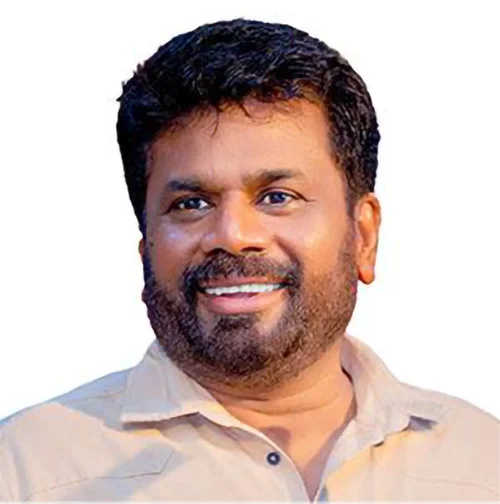
President Anura Kumara Dissanayake has been investing his political capital in going to the public to explain some of the most politically sensitive and controversial issues. At a time when easier political choices are available, the president is choosing the harder path of confronting ethnic suspicion and communal fears. There are three issues in particular on which the president’s words have generated strong reactions. These are first with regard to Buddhist pilgrims going to the north of the country with nationalist motivations. Second is the controversy relating to the expansion of the Tissa Raja Maha Viharaya, a recently constructed Buddhist temple in Kankesanturai which has become a flashpoint between local Tamil residents and Sinhala nationalist groups. Third is the decision not to give the war victory a central place in the Independence Day celebrations.
Even in the opposition, when his party held only three seats in parliament, Anura Kumara Dissanayake took his role as a public educator seriously. He used to deliver lengthy, well researched and easily digestible speeches in parliament. He continues this practice as president. It can be seen that his statements are primarily meant to elevate the thinking of the people and not to win votes the easy way. The easy way to win votes whether in Sri Lanka or elsewhere in the world is to rouse nationalist and racist sentiments and ride that wave. Sri Lanka’s post independence political history shows that narrow ethnic mobilisation has often produced short term electoral gains but long term national damage.
Sections of the opposition and segments of the general public have been critical of the president for taking these positions. They have claimed that the president is taking these positions in order to obtain more Tamil votes or to appease minority communities. The same may be said in reverse of those others who take contrary positions that they seek the Sinhala votes. These political actors who thrive on nationalist mobilisation have attempted to portray the president’s statements as an abandonment of the majority community. The president’s actions need to be understood within the larger framework of national reconciliation and long term national stability.
Reconciler’s Duty
When the president referred to Buddhist pilgrims from the south going to the north, he was not speaking about pilgrims visiting long established Buddhist heritage sites such as Nagadeepa or Kandarodai. His remarks were directed at a specific and highly contentious development, the recently built Buddhist temple in Kankesanturai and those built elsewhere in the recent past in the north and east. The temple in Kankesanturai did not emerge from the religious needs of a local Buddhist community as there is none in that area. It has been constructed on land that was formerly owned and used by Tamil civilians and which came under military occupation as a high security zone. What has made the issue of the temple particularly controversial is that it was established with the support of the security forces.
The controversy has deepened because the temple authorities have sought to expand the site from approximately one acre to nearly fourteen acres on the basis that there was a historic Buddhist temple in that area up to the colonial period. However, the Tamil residents of the area fear that expansion would further displace surrounding residents and consolidate a permanent Buddhist religious presence in the present period in an area where the local population is overwhelmingly Hindu. For many Tamils in Kankesanturai, the issue is not Buddhism as a religion but the use of religion as a vehicle for territorial assertion and demographic changes in a region that bore the brunt of the war. Likewise, there are other parts of the north and east where other temples or places of worship have been established by the military personnel in their camps during their war-time occupation and questions arise regarding the future when these camps are finally closed.
There are those who have actively organised large scale pilgrimages from the south to make the Tissa temple another important religious site. These pilgrimages are framed publicly as acts of devotion but are widely perceived locally as demonstrations of dominance. Each such visit heightens tension, provokes protest by Tamil residents, and risks confrontation. For communities that experienced mass displacement, military occupation and land loss, the symbolism of a state backed religious structure on contested land with the backing of the security forces is impossible to separate from memories of war and destruction. A president committed to reconciliation cannot remain silent in the face of such provocations, however uncomfortable it may be to challenge sections of the majority community.
High-minded leadership
The controversy regarding the president’s Independence Day speech has also generated strong debate. In that speech the president did not refer to the military victory over the LTTE and also did not use the term “war heroes” to describe soldiers. For many Sinhala nationalist groups, the absence of these references was seen as an attempt to diminish the sacrifices of the armed forces. The reality is that Independence Day means very different things to different communities. In the north and east the same day is marked by protest events and mourning and as a “Black Day”, symbolising the consolidation of a state they continue to experience as excluding them and not empathizing with the full extent of their losses.
By way of contrast, the president’s objective was to ensure that Independence Day could be observed as a day that belonged to all communities in the country. It is not correct to assume that the president takes these positions in order to appease minorities or secure electoral advantage. The president is only one year into his term and does not need to take politically risky positions for short term electoral gains. Indeed, the positions he has taken involve confronting powerful nationalist political forces that can mobilise significant opposition. He risks losing majority support for his statements. This itself indicates that the motivation is not electoral calculation.
President Dissanayake has recognized that Sri Lanka’s long term political stability and economic recovery depend on building trust among communities that once peacefully coexisted and then lived through decades of war. Political leadership is ultimately tested by the willingness to say what is necessary rather than what is politically expedient. The president’s recent interventions demonstrate rare national leadership and constitute an attempt to shift public discourse away from ethnic triumphalism and toward a more inclusive conception of nationhood. Reconciliation cannot take root if national ceremonies reinforce the perception of victory for one community and defeat for another especially in an internal conflict.
BY Jehan Perera
Features
Recovery of LTTE weapons

I have read a newspaper report that the Special Task Force of Sri Lanka Police, with help of Military Intelligence, recovered three buried yet well-preserved 84mm Carl Gustaf recoilless rocket launchers used by the LTTE, in the Kudumbimalai area, Batticaloa.
These deadly weapons were used by the LTTE SEA TIGER WING to attack the Sri Lanka Navy ships and craft in 1990s. The first incident was in February 1997, off Iranativu island, in the Gulf of Mannar.
Admiral Cecil Tissera took over as Commander of the Navy on 27 January, 1997, from Admiral Mohan Samarasekara.
The fight against the LTTE was intensified from 1996 and the SLN was using her Vanguard of the Navy, Fast Attack Craft Squadron, to destroy the LTTE’s littoral fighting capabilities. Frequent confrontations against the LTTE Sea Tiger boats were reported off Mullaitivu, Point Pedro and Velvetiturai areas, where SLN units became victorious in most of these sea battles, except in a few incidents where the SLN lost Fast Attack Craft.

Carl Gustaf recoilless rocket launchers
The intelligence reports confirmed that the LTTE Sea Tigers was using new recoilless rocket launchers against aluminium-hull FACs, and they were deadly at close quarter sea battles, but the exact type of this weapon was not disclosed.
The following incident, which occurred in February 1997, helped confirm the weapon was Carl Gustaf 84 mm Recoilless gun!
DATE: 09TH FEBRUARY, 1997, morning 0600 hrs.
LOCATION: OFF IRANATHIVE.
FACs: P 460 ISRAEL BUILT, COMMANDED BY CDR MANOJ JAYESOORIYA
P 452 CDL BUILT, COMMANDED BY LCDR PM WICKRAMASINGHE (ON TEMPORARY COMMAND. PROPER OIC LCDR N HEENATIGALA)
OPERATED FROM KKS.
CONFRONTED WITH LTTE ATTACK CRAFT POWERED WITH FOUR 250 HP OUT BOARD MOTORS.
TARGET WAS DESTROYED AND ONE LTTE MEMBER WAS CAPTURED.
LEADING MARINE ENGINEERING MECHANIC OF THE FAC CAME UP TO THE BRIDGE CARRYING A PROJECTILE WHICH WAS FIRED BY THE LTTE BOAT, DURING CONFRONTATION, WHICH PENETRATED THROUGH THE FAC’s HULL, AND ENTERED THE OICs CABIN (BETWEEN THE TWO BUNKS) AND HIT THE AUXILIARY ENGINE ROOM DOOR AND HAD FALLEN DOWN WITHOUT EXPLODING. THE ENGINE ROOM DOOR WAS HEAVILY DAMAGED LOOSING THE WATER TIGHT INTEGRITY OF THE FAC.
THE PROJECTILE WAS LATER HANDED OVER TO THE NAVAL WEAPONS EXPERTS WHEN THE FACs RETURNED TO KKS. INVESTIGATIONS REVEALED THE WEAPON USED BY THE ENEMY WAS 84 mm CARL GUSTAF SHOULDER-FIRED RECOILLESS GUN AND THIS PROJECTILE WAS AN ILLUMINATER BOMB OF ONE MILLION CANDLE POWER. BUT THE ATTACKERS HAS FAILED TO REMOVE THE SAFETY PIN, THEREFORE THE BOMB WAS NOT ACTIVATED.
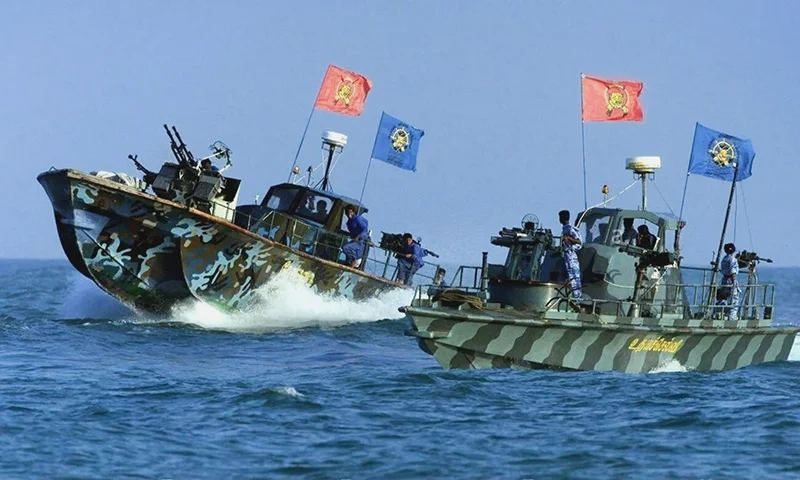
Sea Tigers
Carl Gustaf 84 mm recoilless gun was named after Carl Gustaf Stads Gevärsfaktori, which, initially, produced it. Sweden later developed the 84mm shoulder-fired recoilless gun by the Royal Swedish Army Materiel Administration during the second half of 1940s as a crew served man- portable infantry support gun for close range multi-role anti-armour, anti-personnel, battle field illumination, smoke screening and marking fire.
It is confirmed in Wikipedia that Carl Gustaf Recoilless shoulder-fired guns were used by the only non-state actor in the world – the LTTE – during the final Eelam War.
It is extremely important to check the batch numbers of the recently recovered three launchers to find out where they were produced and other details like how they ended up in Batticaloa, Sri Lanka?
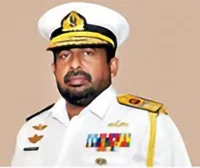 By Admiral Ravindra C. Wijegunaratne
By Admiral Ravindra C. Wijegunaratne
WV, RWP and Bar, RSP, VSV, USP, NI (M) (Pakistan), ndc, psn, Bsc (Hons) (War Studies) (Karachi) MPhil (Madras)
Former Navy Commander and Former Chief of Defence Staff
Former Chairman, Trincomalee Petroleum Terminals Ltd
Former Managing Director Ceylon Petroleum Corporation
Former High Commissioner to Pakistan
-

 Features3 days ago
Features3 days agoMy experience in turning around the Merchant Bank of Sri Lanka (MBSL) – Episode 3
-

 Business4 days ago
Business4 days agoZone24x7 enters 2026 with strong momentum, reinforcing its role as an enterprise AI and automation partner
-

 Business3 days ago
Business3 days agoRemotely conducted Business Forum in Paris attracts reputed French companies
-

 Business3 days ago
Business3 days agoFour runs, a thousand dreams: How a small-town school bowled its way into the record books
-

 Business3 days ago
Business3 days agoComBank and Hayleys Mobility redefine sustainable mobility with flexible leasing solutions
-

 Business4 days ago
Business4 days agoHNB recognized among Top 10 Best Employers of 2025 at the EFC National Best Employer Awards
-

 Editorial6 days ago
Editorial6 days agoAll’s not well that ends well?
-

 Business4 days ago
Business4 days agoGREAT 2025–2030: Sri Lanka’s Green ambition meets a grid reality check













